
The stress test
Mentally unwell, but civically engaged … The red must dye … And breaching the border.
Yesterday was Mental Health Day at the Arizona Capitol.
No, they didn’t send the politicians home and disconnect their internet access — though that’s what we recommended.
Mental Health Day means a coalition of citizen lobbyists descended on the Capitol to speak to lawmakers on a variety of issues related to mental health policy, including:
Expanding access to mental health care
Increasing housing opportunities for people with behavioral health and disability needs
And mitigating staffing shortages for behavioral health care providers.
But we want to talk about your mental health.
Following local politics shouldn’t feel like an act of self-harm. And yet, here we all are, getting our cortisol injections from the daily onslaught of bad news, bad policy and bad people.
So today, let’s explore the negative mental health impacts that come with being politically engaged — the physical burnout, existential dread and doomscrolling addiction.
And let’s look at a few small changes we can all make to tamp down on the stress and still stay plugged in to this shitshow that we call the democratic process.
Because our politics are destroying our mental health.
Not convinced? In his research paper titled “Politics is Making us Sick,” political scientist Kevin Smith details the toll that political discourse takes on Americans — 40% of us identify politics as a significant source of stress, roughly a quarter say politics has caused fatigue, feelings of anger, loss of temper and triggering compulsive behaviors and 5% of Americans blame politics for giving them suicidal thoughts.
And that was before the Trump 2.0 presidency. (Three months down — 45 to go!)
Before we get into what we can do about all that… How are you doing?
Wanna talk about it? Drop into the comments section.
Us? Well, let’s just say…
Not to dwell on the psychological drawbacks of our chosen profession, but working in political journalism can be mentally and emotionally taxing.
We’re not seeking your pity here — we mention it because the same mental health problems that plague political reporters are issues for basically anyone who engages in politics regularly.
It used to be that news came out once a day (maybe twice a day if you were lucky enough to live in a town with an afternoon newspaper). Then came cable news and the 24-hour news cycle (which you could still turn off). These days, we’re living in a world of push notifications, where every Trump Truth post is served up with an anxiety-spiking buzz in your pocket.
So let’s start there.
Social Media
We love social media — it’s an amazing, transformative tool that allows people to connect and share information and ideas.
It’s also fomenting a worldwide mental health crisis. Especially for kids.
For those of us hooked on politics, it’s probably the main stress-inducer. The algorithms that feed us news and information reward outrage. The more upset you are, the more likely you are to engage or keep scrolling. That’s the point.
They don’t call it doomscrolling for nothing.
And while staying informed via social media can feel productive (and even be productive!), it can also lead to apathy.
There’s a framework that social scientists like to use called the “narcotizing dysfunction” theory, describing the paradox of increased knowledge via mass media actually leading to decreased action. One of the researchers on this front, Şakir Eşitti, explained it this way:
“(I)ncreasing dosages of information on these communication tools overwhelm people about issues and they become apathetic to take action. Overconsumption of information from social media causes narcotising of the users.”
In other words, retweeting something about a protest is not the same as attending a protest.
So what’s the solution? Well, besides shutting off or taking breaks from social media, research suggests that simply understanding what it is you're consuming can help.
That’s where media literacy comes in.
Learning to ask questions like “who made this and why?” and “what action do the creators of this content want me to take?” can help cut down on the paralyzing effect of information overload and help you distinguish between critical information and attention bait online.
Here’s a helpful video course.
News Consumption
You can’t have a self-governing society without access to news.
But these days, most of us have too much access to too much news. That leads to “information overload,” where the sheer volume of news surpasses our ability to process it. That, in turn, leads to “news avoidance,” where people just shut down and log off.
We get it — the news is inherently depressing, even in the best of times.
It’s part human nature, part business model — both of which can be summed up in the old journalism maxim of “if it bleeds, it leads.”
So, how do you find that happy middle ground between bingeing the news until you’re too depressed to get out of bed or starving yourself of it completely?
It starts with being intentional about your news diet.
You can set times that you consume the news — like say at around 6 a.m. Monday through Friday…
You know who publishes at 6 a.m.?
You can also be more selective about which sources you consume. Pick ones that bring you solid information and some joy. Consume less partisan outrage content — even the content you agree with! Try some NPR instead.
And go deeper — rather than subjecting yourself to news about every executive order, be more deliberate about the issues you invest mental and emotional energy in. Pick a few topics you’ll allow yourself to read about, and a few things that you simply avoid.
And most of all, remember that news is a tool — not an end result. Being informed is great. But doing something with that information is the real goal — whether that’s political advocacy or simply discussing current events with friends.
Which brings us to…
Personal Relationships
Friendships are one of the main markers of mental health.
And a lot of us are losing friends over politics.
We’re not here to tell you to make up with your fascist uncle over that Thanksgiving blowout you all had — that’s your business.
But you’re probably not going to turn him into a progressive by shouting at him. Frankly, you’re probably not going to change him no matter what you do.
So you have a decision to make: Don’t see him — or don’t talk politics.
Either one is ok.
But if you choose to cut people off because of their political beliefs, don’t just shrink your world.
Find new people. Find your people. And try to find them in real life.
In the meantime, here’s a video of strange animal friendships to help get you through the day. (Check out the Golden Retriever and wild boar besties!)
We love dumb Buzzfeed-style quizzes. So we made one for you to unscientifically determine what kind of political burnout you’re experiencing.
1. What’s the first thing you do when you wake up?
A. Open Twitter. Regret it instantly. (+2)
B. Meditate for five minutes, then spiral anyway. (+1)
C. Check news alerts, texts, and Slack before opening your eyes. (+3)
D. Lie in bed, wondering if the First Amendment was a mistake. (+4)
E. Scroll TikTok to get the news from a raccoon with a law degree. (+5)
2. Your relationship with push notifications:
A. I read every alert out loud like I’m the anchor on a local news segment. (+4)
B. I turned them off for mental health. (+2)
C. Only get alerts from my therapist. (+1)
D. My phone vibrates constantly. I flinch. (+3)
E. I read them only if they spike my cortisol. (+5)
3. Pick your poison:
A. Rage-reading every article about the Arizona Legislature. (+3)
B. Arguing with bots in Facebook comments. (+4)
C. Feeling deeply informed but emotionally dead inside. (+2)
D. Watching politics like it's a reality show — you can’t stop and you hate yourself for it. (+5)
E. Ignoring it all until it explodes during brunch. (+1)
4. Describe your media diet:
A. News is my veggies. And I hate veggies. (+3)
B. An all-you-can-eat conspiracy buffet. (+4)
C. One investigative deep dive, one meme. Balance. (+2)
D. I consume zero news and yet somehow know everything. (+1)
E. I only read the headlines. (+5)
5. What’s your emotional support activity?
A. Crying in the shower while reading dissenting Supreme Court opinions. (+4)
B. Rage-texting your friend about school board meetings. (+1)
C. Staring at the wall while NPR plays in the background. (+3)
D. Making memes about obscure legislation. (+5)
E. Scrolling TikTok while muttering “this is activism.” (+2)
🔢 TOTAL SCORE: ______
Use your total to find out what flavor of burnout you’re currently rocking:
5–7: 🧸 The Soft Quitter
You care, but you’re exhausted. You’ve pulled back to preserve your sanity — and that’s fair.
8–11: 🪦 The Dead-Eyed Doomscroller
You're consuming more news than any one person should — but none of it’s sinking in. You’ve become emotionally flameproof, which is concerning. Step away before your soul turns to toast.
12–15: 🧨 The Twittered-Out Wreck
You’re hyper-informed, extremely online, and constantly vibrating with a mix of rage and sarcasm. You might be mistaken for a political staffer. Log off immediately.
16–19: 🧃 The Chaos Organizer
You’re still doing the work. Everyone says “how do you do it?” and the answer is: panic, passion and coffee. You are hanging on. We love that for you. Now nap.
20–25: 🤡 The Jester of Despair
You cope through the gallows jokes. You’ve made collapse your brand. You’re hilarious and also maybe unwell. It’s okay to feel things for real — not just for content.
Red dye and ringtones: Gov. Katie Hobbs signed two Republican bills into law that regulate cell phone use and ultra-processed foods in schools, per 12News’ Kevin Reagan. The lucky bills are Rep. Leo Biasiucci’s HB2164, which prohibits schools from selling or serving processed foods with ingredients like red dye 40 or potassium bromate, and Rep. Beverly Pingerelli’s HB2484, which forces schools to limit cell phone use during the school day with some exceptions for emergencies and academic uses. Republican Rep. Quang Nguyen’s HB2603, which sets up a mechanism for the Arizona Game and Fish Commission to take away licenses from people who break specific wildlife laws, also got gubernatorial approval.
Doctor’s orders: Arizona’s Medicaid system, AHCCCS, is going through the federal approval process to add a requirement that recipients must work (or prove they’re looking for work) to receive benefits from the program that provides health insurance to mostly low-income people, the Republic’s Stephanie Innes reports. About 190,000 Arizonans would be directly affected by the state-level change, while Congress is considering making huge cuts to the national Medicaid program. President Donald Trump has supported work requirements for Medicaid recipients, and celebrity Doctor Mehmet Oz is in charge of the national Medicare & Medicaid agency.
Someone call the Lorax: A new Trump administration directive could subject 59% of national forest lands to logging, including large chunks of southern and central Arizona, the Daily Star’s Tony Davis reports. Agriculture Secretary Brooke Rollins said the new rules would decrease wildfires and diseases, and the U.S. Forest Service put out a call to increase timber production. Environmentalists are raising alarms about potential harm to endangered species and clean water.
One of the best songs in The Lorax is “Let it Grow,” and that applies to both trees and local, independent journalism. Like the Lorax, we need your help to keep growing this newsletter.
Good luck, Mars rover: DOGE cuts are hitting a small office in Flagstaff that guides robotic probes as they land on Mars, the New York Times reports. Employees of the Astrogeology Science Center are taking buyouts, with another round coming up soon. Ironically, when billionaire tech bro Elon Musk decides to set up a colony on Mars, as he’s promised to do, he’ll depend on the team of astrogeologists in Flagstaff to make sure his spaceships don’t crash and they can find any water deposits.
Cutting out the middle man: Athletes at Arizona universities could get paid directly by the school they attend, under a bill the Legislature is considering, Capitol Media Services’ Howard Fischer reports. For the past few years, athletes have been allowed to make money through advertising and other private deals, some worth millions of dollars. But under SB1615, Arizona universities would be able to spend about $20 million of school money (an amount tied to an expected court settlement) to entice athletes to enroll. How would universities pay for it? The top option lawmakers are floating so far is kind of unexpected: Raffles.
Driving the story: After receiving a presidential pardon, part-time Arizona resident Trevor Milton said he plans to release a YouTube documentary tell-all of his escapades escaping a criminal fraud conviction tied to his company Nikola Corp., the Republic’s Russ Wiles writes. Milton’s company builds trucks that run on hydrogen and electric power, and he was sentenced to four years in prison for wire fraud and fraudulently driving up the company’s stock. He donated about $1.8 million to pro-GOP causes last year, and in 2022, then-Gov. Doug Ducey toured his company’s Coolidge factory.
After the “Gulf of America” stunt and calls to rename the mountain Denali to the way more American title of “Mount McKinley,” Republican Rep. Leo Biasiucci is taking a page out of Donald Trump’s playbook and suggesting taking over part of northern Mexico as “New Arizona.”
Trump is already militarizing federal land on the border, so why not dip further south?
It’s somewhat of a cyclical moment. In 2011, former Pima County Democratic Party Chairman Paul Eckerstrom started a bid to make Pima County a separate state over “extremist policies coming out of our state Legislature.” He suggested calling it Baja Arizona.
A Twitter user suggested Baja California would be a better option, but Biasiucci said, “I really don’t want Tijuana.”


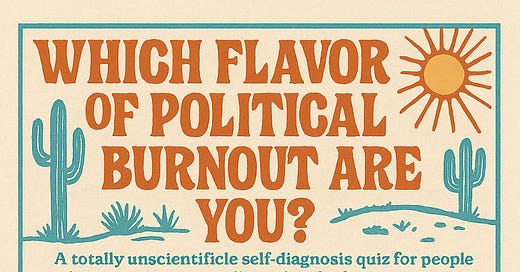

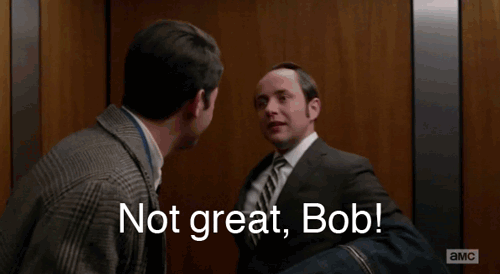
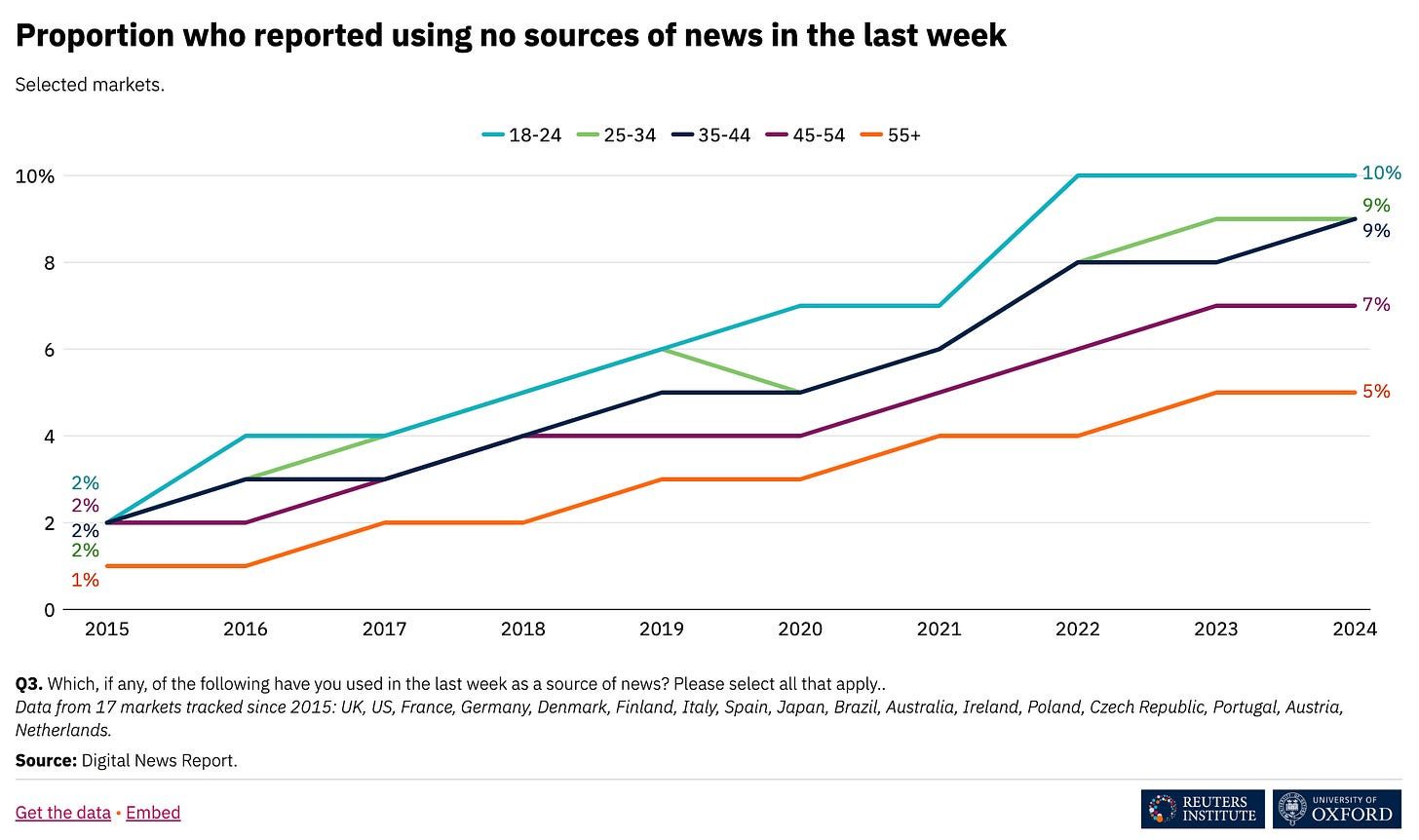



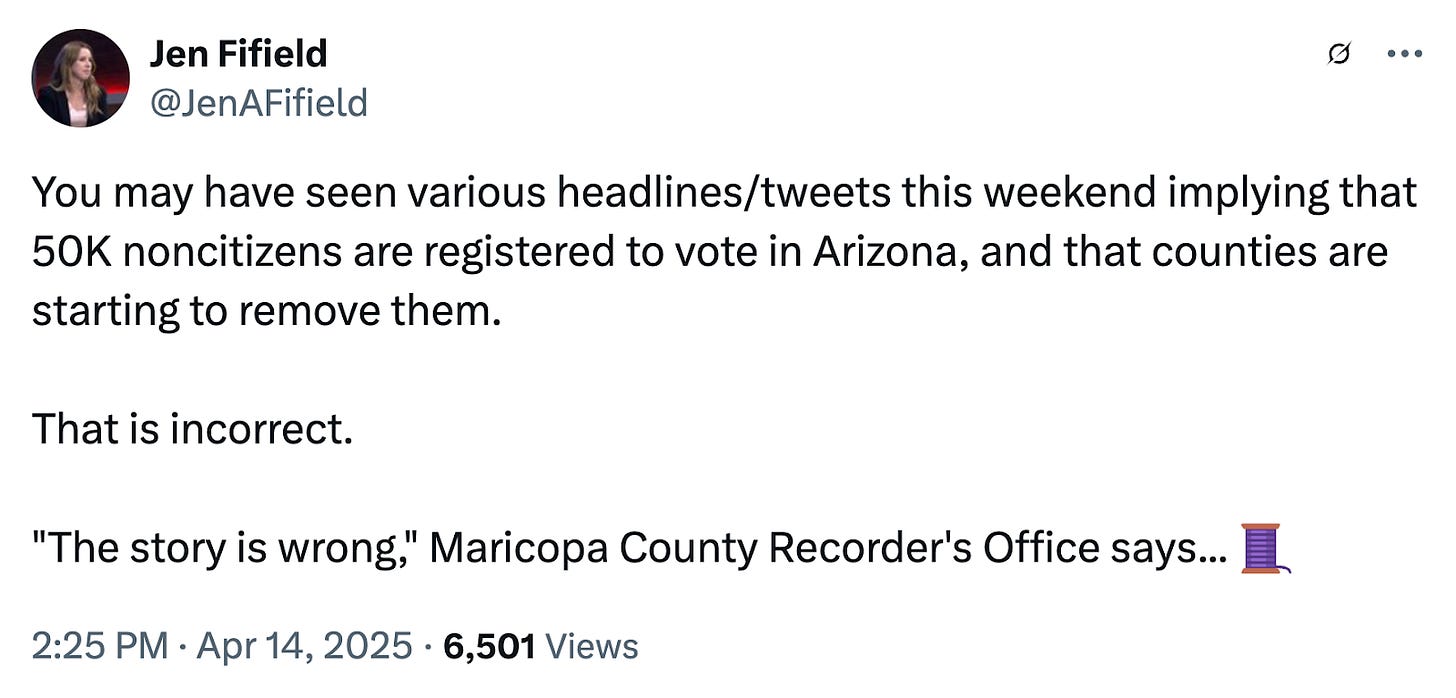
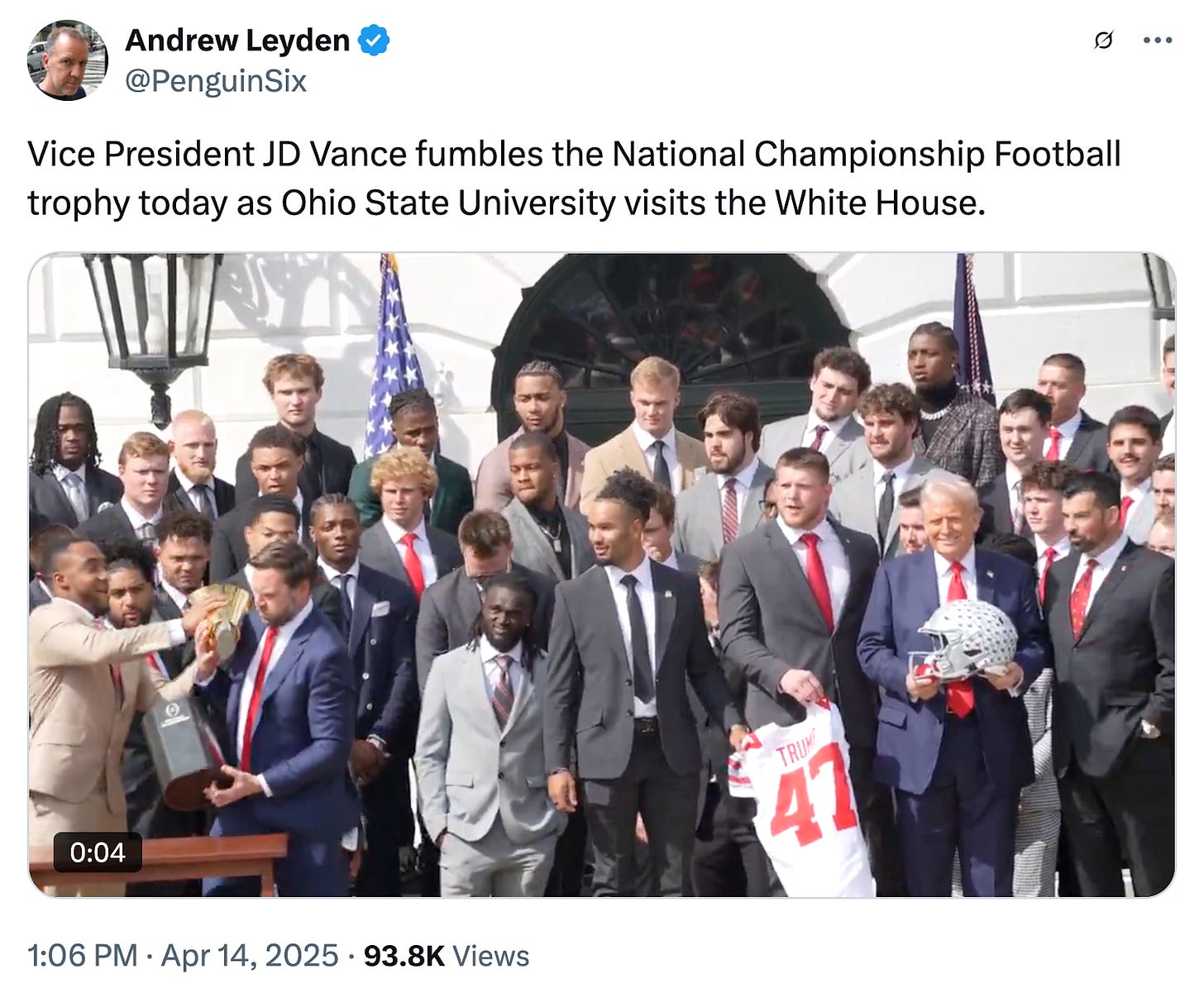

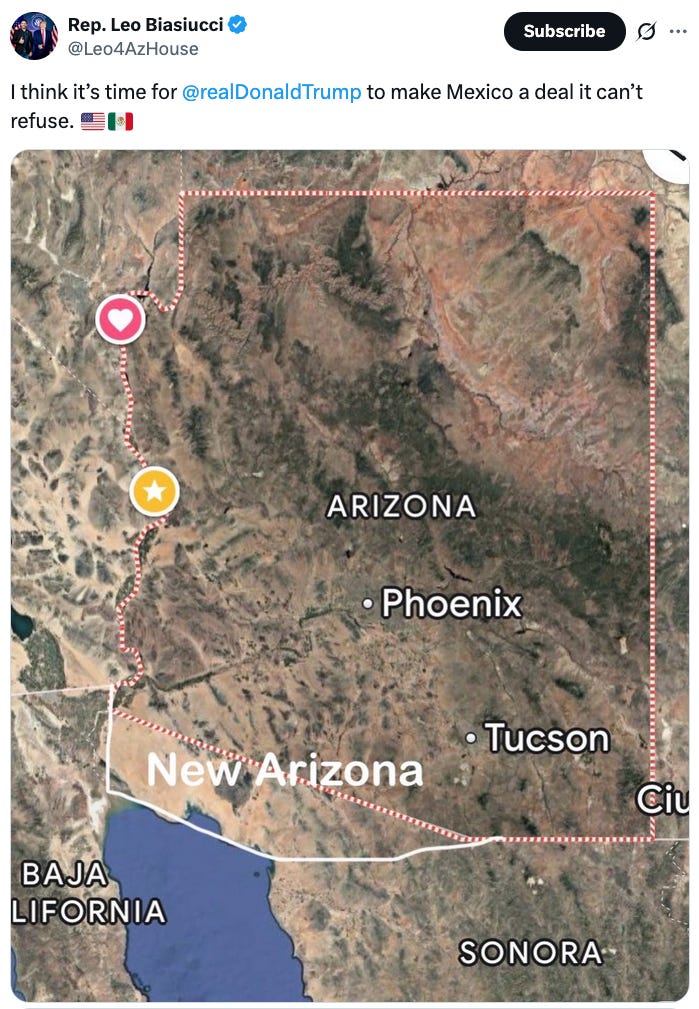





Jester of Despair. I’ll be fine in 45 months.
My doom-scroll started April 2 and hasn't really stopped since.
What gets me down is the constant chaos from the White House. What pushes my buttons is the bad faith arguments from AZ Republicans in the state house, sheriff's offices, and county supervisor's meetings. What chaps my hide is watching smart friends deny facts and support what are obviously ill-conceived and destructive policies.
What makes me hopeful is seeing neighbors gather together to help one another. What warms my heart is children playing and learning at school. What fills my tank is family dinners. What I look forward to reading in the morning is the Arizona Agenda, Tucson Agenda, and Water Agenda. Keep up the good work, y'all!